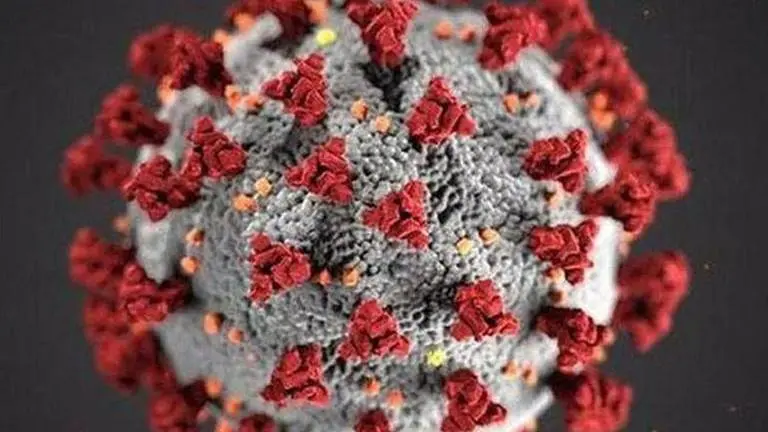Updated 19 April 2020 at 15:47 IST
Virus survivor in UK recalls severe deterioration
At his darkest moment in his struggle with the coronavirus, Dr Poorna Gunasekera glimpsed the first rays of light when three of his former students came to help.
- World News
- 5 min read

At his darkest moment in his struggle with the coronavirus, Dr Poorna Gunasekera glimpsed the first rays of light when three of his former students came to help.
Having deteriorated severely during his battle with COVID-19 around 10 days after contracting the virus, Gunasekera was rushed to Derriford Hospital in Plymouth in the early hours of March 30.
If it had been a day or two later he's sure he wouldn't have survived.
Upon entering the so-called "red zone," which is one step below the intensive care unit, the 57-year-old doctor was immediately put into solitary confinement as his condition deteriorated further.
Advertisement
"It was wonderful that during that time, two of my former students who are doctors and another who was a nurse, actually came and they identified themselves," he told The Associated Press.
His voice choked with emotion as he remembered those moments on what was his first night as a patient in a hospital.
Advertisement
"It made a world of a difference to me," he said. "I couldn't have seen their faces, they were all in their protective things, but they came and they not only treated me, they did some really difficult procedures."
Gunasekera, better known to his friends and colleagues as PG, grew up in Kandy, Sri Lanka, and led the Guard of Honour that was accorded to Queen Elizabeth II at the time of her official visit to the city in 1981.
He came to the UK in 1999 having been awarded a Commonwealth scholarship to study for a masters at University College London and has been in the academic field that feeds the National Health Service ever since.
In 2012, he was appointed an Associate Professor of Biomedical Sciences at the University of Plymouth and this March became the Associate Dean for the Faculty of Health: Medicine, Dentistry and Health Sciences.
Medical knowledge doesn't necessarily bestow all-out wisdom though, as Gunasekera states himself.
He readily admits that he underestimated the deterioration in his condition after he first contracted the virus.
His daughter Saki and her boyfriend George Petrie also suffered from the illness but ended up having much milder symptoms.
Gunasekera's partner Hayley Newman worried about him visiting London earlier in March, before the UK was put in lockdown.
"I actually didn't take this seriously," he said. "Hayley, my partner, is the only one who took it seriously. She wanted me to refer myself to the hospital, at least a day or two earlier than I really did."
Gunasekera was even in denial about his symptoms when he had a fever above 39 degrees Celsius (102 Fahrenheit), and had lost 6.5 kilograms (14 pounds) in a matter of days as a result of diarrhoea.
Saki "decided to overrule" him and made the call that saw her father rushed to the hospital, a decision that ultimately saved his life.
Gunasekera entered the "red zone," where he would spend around a week hooked up to oxygen supplies
At his worst, Gunasekera was taking in eight litres of external oxygen per minute, around half the amount before patients are sent to the ICU.
Something curious occurred to Gunasekera on about the third or fourth day of his time in the "red zone," one that on reflection he considers to have been the "most crucial" period in his battle with COVID.
He entered a pain-free phase and his sense of proprioception, whereby the body sends signals about where the joints are in space, had switched off too.
"I wouldn't call it levitation but I lost senses, but I had all motor control. I could move when I wanted but I had no sensory feedback," he said. "It was the most peaceful state in life I've ever been in. It was almost as if some authority up there said 'stop worrying' and it was so convincing I actually stopped worrying."
The worrying resurfaced as his health steadily improved and a few days later he was moved to an "amber" ward where he encountered three other patients recovering from COVID-19.
All four of them, he said, shared the same sense of dread, that they could be sources of new outbreaks of the virus on leaving hospital.
"We called ourselves the COVID veterans. We really, and that is a feeling I still have, I've not stepped out of my garden gate for all these days. We are really concerned that we'll be carrying the disease back. And there is a lot of uncertainty about it."
Now home in self-isolation with Saki and George and his dog Barney for at least two weeks, and away from Hayley, in the tiny village of Filham in south Devon, Gunasekera has reflected on his ordeal, and become ever more hopeful about his work and how the world responds to arguably its biggest peacetime challenge in living memory.
"I was in hospital when my daughter was born, with her, the first night, but I've never been a patient myself. And I had a huge fear about how I would experience hospital. What I experienced was nothing short of exceptional. Seriously, the people who work in the NHS, they are stretched to the limit, but when it comes to patient contact, I always felt as if they were there just for me," he said.
Published By : Associated Press Television News
Published On: 19 April 2020 at 15:47 IST
